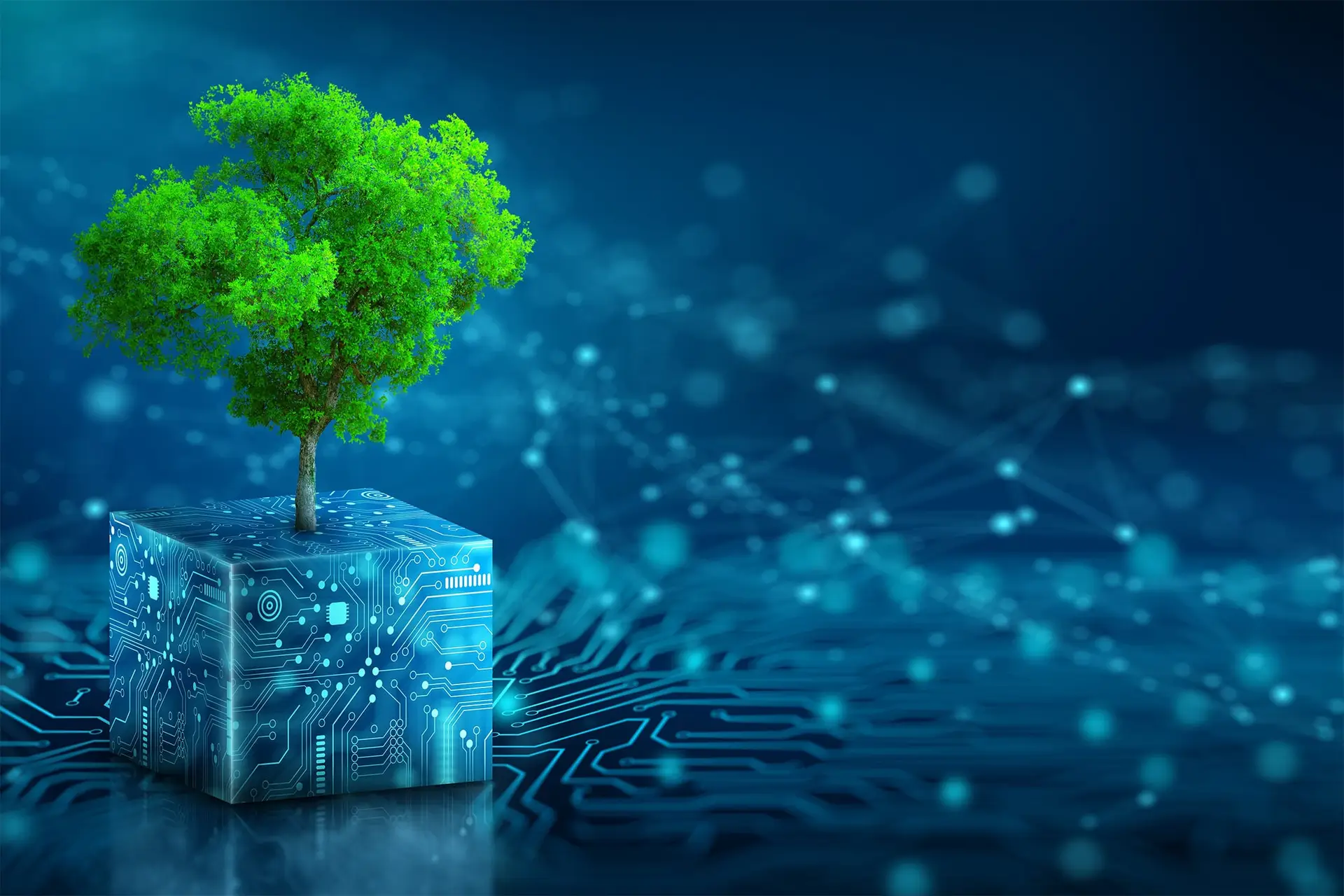As the year draws to a close, with new negative records for COVID-19 infections being set on a daily basis around the world, it becomes all too easy to fixate on the here and now. Of course, there are good reasons to do so – we undoubtedly find ourselves in a global crisis of the century, the effects of which are often hitting too close to home, directly in front of our eyes. Overcoming this crisis will take a great degree of solidarity, perseverance, as well as a collective ability and willingness to adjust our behavior according to new data. How can this not claim the lion’s share of attention? At the same time, we must not forget that even bigger challenges lie ahead – such as global warming, resource scarcity, and inequality. Their effects might be more abstract compared to the current pandemic, but they also have the potential to be even more drastic in an uncomfortably near future.
Just like the fight against COVID-19, combating the climate emergency, overuse of resources, and economic injustice will require coordinated, decisive, and informed efforts to transform our business actions and ensure a more sustainable and prosperous future. That’s exactly what the “Vision 2050: Time to Transform” is about – the shared vision of the World Business Council for Sustainable Development (WBCSD), a CEO-led organization of over 200 leading companies willing to take actions that transform our major economic systems in line with the United Nation’s Sustainable Development Goals and the Paris Climate Agreement. Our vision at iPoint meanwhile is to be the best partner for fully digitalized life cycles of truly sustainable products, which fits perfectly into the WBCSD’s Vision 2050. As a member of WBCSD, we are glad to contribute our know-how to create the necessary transparency to simplify the management of compliance, sustainability, and risk information and thus accelerate the transformation towards a circular economy and a world in which over nine billion people can live well within the boundaries of the planet.
WBCSD’s Vision 2050: a life in prosperity for future generations
In 2010, the WBCSD published the original Vision 2050 which called for a world in which an increasing number of people can live a life in prosperity without depleting earth’s finite resources. A key factor for this plan to succeed will be a transition from linear business models that destroy the value of a product at the end of its life cycle to a circular economy which seeks to preserve value – and resources – through recycling, recovery, reuse, etc. The WBCSD’s vision for products and materials is that by 2050, resource use is optimized to meet society’s needs while allowing the systems that provide resources to regenerate. This move towards a circular business system requires new business models, supporting policies, science-based targets, sharing of knowledge across ecosystems, and collaboration across supply chains. In short: global coordination is required – which is why in 2021, the WBCSD updated its Vision 2050 to provide guidance for this undertaking in the form of a framework of action that is designed to help companies in their transformation.
Pathfinder: a framework for product life cycle emissions
In addition to that, the Carbon Transparency Partnership of the WBCSD launched the Pathfinder Framework in November 2021 as a guidance for the calculation and exchange of product-level carbon emissions data across value chains. Leading technology companies in this space, such as CircularTree, IBM, iPoint, Microsoft, and SAP have come together to jointly design and create an open and interoperable network for all businesses and industry-focused data exchange platforms, enabling cross-organizational data exchange and unified ways to report carbon footprints while considering the whole supply chain. To make Vision 2050 a reality, this kind of transparency will be one of the central puzzle pieces – and in the iPoint Group, we are working exactly on that with passion and a high innovative spirit.
Reliable data lays the foundation for sustainable change
Since our founding in 2001, iPoint has been driven by a question in the same vein as WBCSD’s Vision 2050: How can today’s technologies contribute to securing a prosperous, equitable, and sustainable world worth living in for future generations. This is why we are a proud signatory of the United Nations Global Compact, the world’s largest and most widely embraced voluntary corporate sustainability initiative. This is why we place sustainability at the forefront of everything we do, embedding it into our corporate strategy, organizational culture, and everyday operations – we live sustainability. And this is why, as a software company, we strive to use digitalization to advance sustainable change. This is our purpose which we fulfill, for example, with iPoint Product Sustainability, our software which enables businesses to analyze and evaluate the environmental impact of their products across their whole life cycle. This is important because making the right decisions, from product design to manufacturing processes to the use phase and beyond, depends on the greatest possible transparency based on reliable data. With our knowledge and our powerful digital solutions, we thus help accelerate the transition to the circular economy and to help create a world that will be a safe and welcoming home for future generations. This is our contribution to the Vision 2050, one that arises directly from our own purpose, vision, and mission.
As for the present, I once again wish you all the best for the New Year 2022 and especially for the upcoming winter months (in the Northern hemisphere). Stay healthy, stay safe – but also think of the future. It depends on us making the right decisions today. If you want to work together with us and our network to drive sustainable change in business, don’t hesitate to contact us. The huge challenges we can only solve together.
Wishing you a happy holiday season and a prosperous New Year,
Joerg



